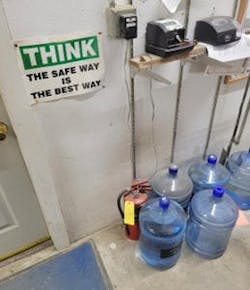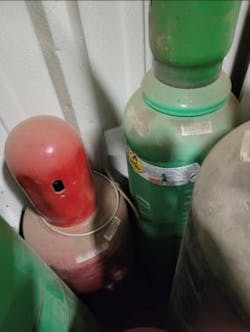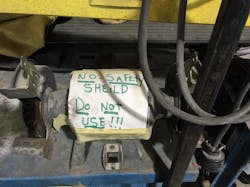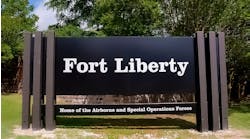Collision repair shops are under constant scrutiny from regulatory agencies and face constant inspection.
Kevin Dwyer, a product manager for environmental, health, and safety (EHS) compliance expert GMG EnviroSafe, says between reactive inspections after an incident, follow-ups to complaints or simple routine checks, shops can have agency representatives in their shops constantly.
“Shops are getting inspected all the time,” he says. “There are a number of things that can prompt an inspection, but it all comes from those organizations trying to create safe working environments.”
The best way to make sure that your shop comes out on the other side of an inspection without any citations is to make sure you have policies in place, that your employees are very familiar with that policy, and that your shop is keeping an eye out for common violations.
As told to Noah Brown
Putting a Policy in Place
There are a lot of things agencies such as OSHA and EPA are looking for, and it’s a lot for shops to keep track of. That’s why it’s crucial that a shop has a written policy on inspections.
An inspection policy should include all the paperwork an inspector will want to see. You need written programs, such as a hazard communication program and a job hazard assessment. Hazard communications program outline spots in your shop where injuries could happen and how you communicate to your employees to avoid injury, and a job hazard assessment outlines every operation an employee performs and the PPE they wear during those operations to prevent injury.
You'll also need an injury and illness prevention plan. If an injury occurs, how are you investigating it, how are you including your employees for anonymous reporting or to share their feedback? How are you proactively identifying new hazards that come up to make sure that your people don't get hurt?
You need an emergency action plan. If you get hit by a tornado, earthquake, hurricane or other disaster, where are you going and what are you doing? If a fire or a spill occurs in your shop, you need to outline how you will respond to that and what first responders you should call.
Inspectors need to see all those programs written down, and they need them all on site. This is the first thing that an inspector is going to look at. They're going to go through all of your paperwork, and a lot of shops don't know that. That's where an organization such as GMG EnviroSafe comes in. This is one of the biggest reasons shops hire us. We'll tailor all of the necessary paperwork to that individual shop and just give the owner peace of mind so they don't need to worry about it.
If OSHA comes and asks about a specific document or plan and you say that you don't have it or don't know what it is, that's a red flag. That's not an excuse – you're a business owner, and you should know that you need this in place. To them, saying that is the same as telling a police officer who just pulled you over you don’t know what a driver’s license is. You're supposed to know – you're the one driving the car.
Common Violations
I’ve seen shops make many common mistakes that result in big fines.
One is their paint booths need some kind of fire suppression system built in. It doesn’t matter if it’s a sprinkler or dry system – but you need something.
Another is that Oxygen and Acetylene tanks can't be stored together – they need to be at least 20 feet apart from each other. That's a big one that we always get shops on.
Lifts need to be inspected once a year, and bench grinders need eye shields on them.
One that surprises a lot of shops is that you can't have any open space on an electrical board. You need to put space fillers in open spaces where the breakers are missing. In addition, all breakers need to be labeled.
Lastly, you can't have any damaged electrical cords, and they need to have their grounds intact. If the ground is gone, that increases the risk for electrocution.
Training Your Employees
Not only do shops need written policies, but their employees need to be trained regularly on those policies.
Something else that a shop should put into a policy is that non-supervisory employees don't have the right to grant access to a regulatory agency, and then list who to contact if an inspector visits while a manager is out of town.
It's fine if you don't want your technicians to do that. If an inspector comes to your shop and an untrained person says, "Yeah, I'll take you around," the inspector might come up with a laundry list of violations. Those untrained people probably won't know about all the paperwork needed, so an inspector will probably penalize you for that even if you have the proper paperwork on site. You want a policy that clearly outlines who inspectors can talk to, and you need multiple people trained that would be allowed to let OSHA or EPA or the state in.
Owners and managers also need to be familiar with their employees’ rights, and they need to make sure their employees know them, too. If an OSHA inspector comes to a shop and asks to interview an employee, that employee can say yes or no – the owner cannot tell them they aren't allowed. That's how inspectors find a lot of violations, because technicians won't know where paperwork or other things are.
Employees can refuse an interview if they want, but they have the right to take that. You need to clearly state in your policy that your shop will not retaliate against an employee for participating in an interview, and if they participate you cannot influence or interfere. You also need to let them know that any statements they make could be used as the basis for a citation.








